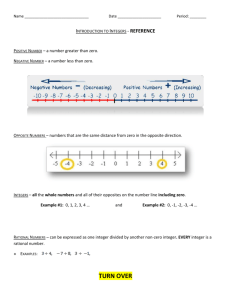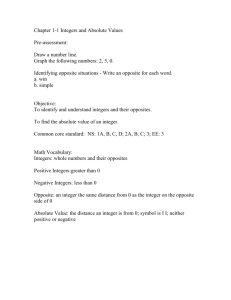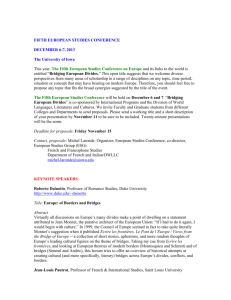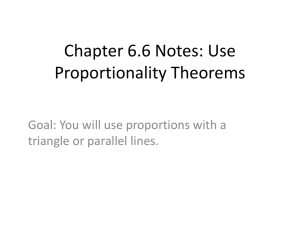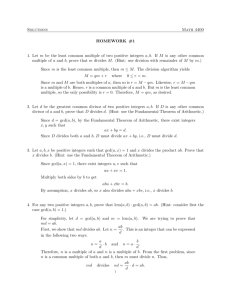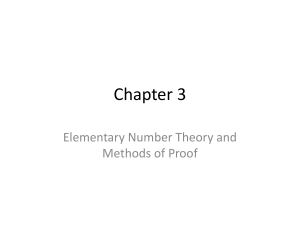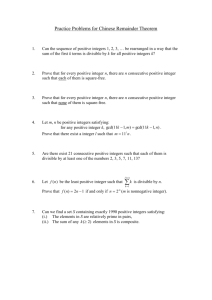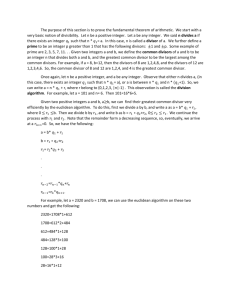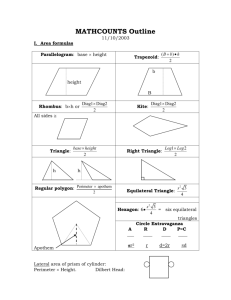M245 4.3 Divisibility
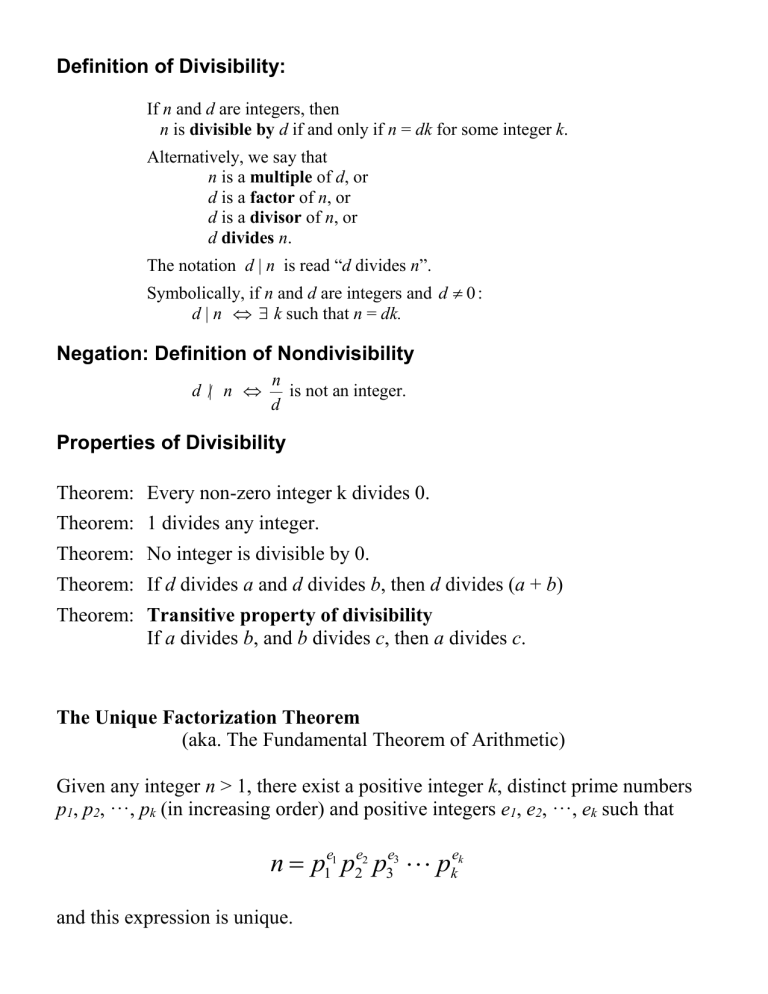
Definition of Divisibility:
If n and d are integers, then n is divisible by d if and only if n = dk for some integer k .
Alternatively, we say that n is a multiple of d , or d is a factor of n , or d is a divisor of n , or d divides n .
The notation d | n is read “ d divides n
”.
Symbolically, if n and d are integers and d
0 : d | n
k such that n = dk.
Negation: Definition of Nondivisibility d |
n
n
is not an integer. d
Properties of Divisibility
Theorem: Every non-zero integer k divides 0.
Theorem: 1 divides any integer.
Theorem: No integer is divisible by 0.
Theorem: If d divides a and d divides b , then d divides ( a + b )
Theorem: Transitive property of divisibility
If a divides b , and b divides c , then a divides c .
The Unique Factorization Theorem
(aka. The Fundamental Theorem of Arithmetic)
Given any integer n > 1, there exist a positive integer k , distinct prime numbers p
1
, p
2
, ···, p k
(in increasing order) and positive integers e
1
, e
2
, ···, e k
such that n
e
1 e p p p e
3
1 2 3
p e k k and this expression is unique.


